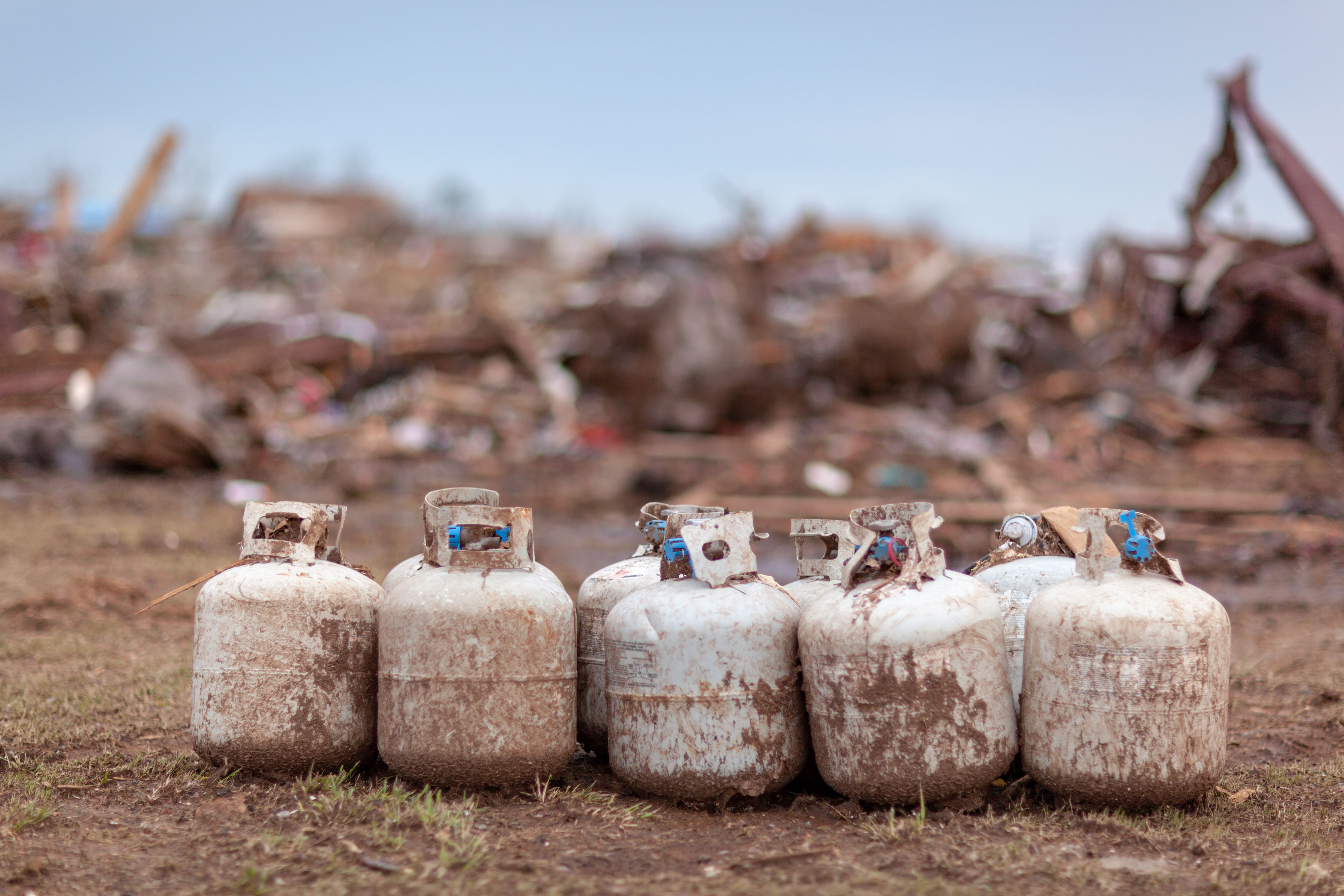
June to November is hurricane season in several states across United States. If you have experienced a hurricane, you already know the chaos and destruction it can bring via tornadoes, mudslides, flooding, storms and power outages.
The importance of keeping your family and home safe in the event of a hurricane cannot be stressed enough. But propane tanks on your property are at the mercy of hurricanes too, and `storm-proofing’ them is part of the preparedness drill, as flood waters can float propane tanks, damaging connections, plugging the relief valve and compromising the regulator.
Below, we’re listing 9 steps you can take to make sure your propane is well-protected in the unfortunate event of a hurricane hitting your area this season:
- High winds can dislodge propane tanks, and water and debris can damage the controls, causing safety issues. The National Fire Protection Agency warns against this and urges users to make sure their propane, whether underground or above, is securely held in place.
- It is possible that only one member of the family handles propane-related matters, but in an emergency situation, there is no guarantee that this person will be at hand to take care of it. To avoid confusion, post a list of contact information for your propane retailer, service technician, etc., as well as step-by-step instructions on how to turn it off if the need arises.
- Make sure you always have enough supply of propane during this season. In the aftermath of a hurricane event, it may not be readily available.
- If a hurricane is about to strike, turn off the main gas supply valve to the tank, if it is safe to do so. Turn off the gas supply valves near indoor appliances as well.
- If you were instructed to evacuate, be very cautious as you return to your property when it is declared safe to do so. Look for downed power lines, damaged gas lines and tanks. If there are any issues with propane, don’t try to fix it yourself. Report to authorities and let them handle it. Do not, under any circumstance, try to modify or repair valves, regulators or other appliance parts.
- Don’t use outdoor propane appliances, like BBQ grills, portable generators, etc. indoors, as you risk carbon monoxide poisoning.
- Don’t store propane tanks in an enclosed area like your basement or garage.
- If propane appliances have been exposed to water, be on your guard. Don’t use any power source while standing in water as electrocution is a possibility.
- Call a professional service tech to perform a complete propane system inspection and wait for the all-clear before you handle propane in the aftermath of a hurricane.
If you’re looking for propane or refined fuel equipment, Custom Truck One Source has you covered. We are a single-source provider of high-quality equipment available for rental or sale.



